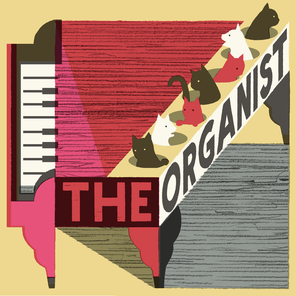
J’s on an intense Zola kick and this book was the one that started it. she said i had to read it. i went dragging my feet. a 500-page naturalist book from the 19th century seemed like it, um, was not going to be my bag. i imagined, semi-rightly, endless pages of description and plot not to mention a moribund philosophy and a long-ago decided politics. i slogged through the first half, which was better than i expected but still slow going.
and then something clicked. it wasn’t exactly needing to find out what happened next, it was a different kind of suspense…. it’s a spectacular biography of the mind of the mob, and with little piercing sketches of psychology. godlike in its handling of the landscape and the multiple minds of its society. like pedro costa in its use of natural light. and an honest, admirable, and relevant politics. (the title referenced finally on the last page, which seems countered by every page before it.)
it is said that sixty thousand marched at zola’s funeral. sixty. thousand.
and o god the horses of germinal. the horses of germinal are more awesome and terrible in their nightmares than the horses of nietzsche or tarr or tarkovsky.
two paragraphs, one from mid-way through and one from near the end, to give you a hint at its arc, as if you needed it. coal miners. won’t be but should be read by everyone who voted for trump and everyone who didn’t. we’re dying “miserably every day for lack of what is found there.” i didn’t want to read it but i’m shattered, glad, and changed now that i did.
It was a scarlet vision of the revolution that would inevitably carry them all away, on some blood-soaked fin de siècle evening. That was it, one night the people would rise up, cast caution aside, and run riot like this far and wide all over the countryside; and there would be rivers of bourgeois blood, their heads would be waved on pikes, their strong-boxes hacked open, and their gold poured all over the ground. The women would scream, and the men would look gaunt as wolves, their fangs drooling and gnashing. Yes, these same rags and the same thunder of clogs, the same terrifying pack of animals with dirty skins and foul breath, would sweep away the old world, as their barbarian hordes overflowed and surged through the land. There would be blazing fires, not a stone of the towns would be left standing, and they would become savages again, living out in the woods, once the poor had enjoyed their great orgy and garnered their harvest, sucked the women dry and sacked the cellars of the rich. There would be nothing left, not a sou of inherited wealth, not a line of legal entitlement, until the day when, perhaps, a new order might at last spring up from the earth. And that was the future out there, tearing down the road like some natural disaster, and buffeting their faces with its great hurricane wind.*
& from the last chapter:
‘You’re right, you’re better off leaving, if you can . . . And I’m glad I’ve seen you, because at least you’ll know I’ve got no axe to grind with you. There was a time I wanted to kill you, after all that butchery. But then you think it over, don’t you? You realize that in the end it’s not really anyone’s fault . . . No, it’s really not your fault, it’s everyone’s fault.’


